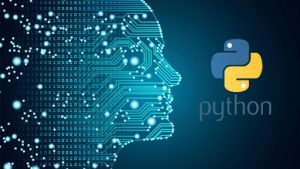Python is a simple and fast language to learn. Its syntax is similar to writing any text in English, but with the power of its main competitors in the BackEnd.
Reading and writing are a pleasure. Python preaches that code should be written by people for people. After all, what you program will be read by you and the rest of the team. If you write for machines, only machines will understand you. It even has its package manager, with no need to install external applications. Simplify installation or upgrade tasks.
Another point in its favor is that it doesn’t need an ecosystem like Xampp, Vagrant, Docker, etc. to run, you only need Python. By running the command in the terminal, you will start your web server, which will make it work surprisingly fast.
If you need help implementing a project in this language, then the python development company will help you with this.
Table of Contents
Where was Python born?
At Christmas 1989, the programmer was sent home. Their offices were going to close for a few weeks. A 33-year-old man named Guido van Rossum found that he only had one device to entertain himself until the end of Christmas: a computer. To kill time, he decided to digress by programming an interpreter for a new scripting programming language he theorized about in his spare time. Without much interest, almost out of formality, he christened her by her simple name. He was a big fan of Monty Python, so he named it “Python”.
And it was here that one of the most expressive languages and the flagship of Open Source was born.
Web frameworks
Among its numerous and fantastic frameworks, we can find the likes of Django, Flask (not to be confused with Adobe Flash), and FastAPI.
Django would be closest to Laravel for PHP or Ruby on Rails for Ruby. A complete and efficient platform for developing very complex web applications with minimal effort. Almost everything you need can be integrated.
For every individual development or with projects that are not very complex, we find Flask. Calls itself a micro-framework, but with simple and smart features to build any site you can think of.
And FastAPI offers high performance for building APIs. Despite being the most recent, its community continues to grow and promote the project.
Neither replaces the other. They all offer different approaches and are worth experimenting with.
Community
The Python community is one of the healthiest and most active. Users spontaneously organize monthly lectures and free language workshops. Various congresses are held annually. But there are also dedicated groups such as the Django Girls, a women’s group that encourages other women to take the plunge into learning to code.
Its great support from the community is partly due to the wide variety of professions that use Python, such as data analysis, artificial intelligence, desktop application development, microdevice development, etc. The libraries do not stop growing and are often carefully documented, creating a pleasant atmosphere.
Competitors
As for the competition, it is wide and with a great experience. The most notable are: PHP, Ruby, Node.js, Java and Go. Although Ruby can be considered a relative due to their similarities. Both are very balanced, although Python continues to rise among the most used languages year after year.
Recommendations for beginners
If you want to get started with this interpreted language, and the web universe, in particular, we recommend that you give Flask a try. You can create small projects like a simple website, REST API, or admin panel. Shortly thereafter, it would make sense to switch to Django and live one of the most complete Python experiences. Dive into high-density projects like a blog, e-commerce, or social network. Discover every one of its details, look at examples in the documentation, and develop highly reliable relational databases. If you still need help, you can always turn to









